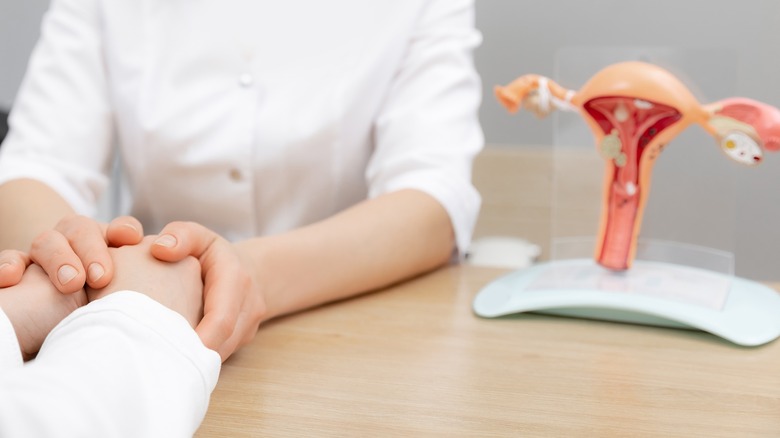What Happens To Your Menstrual Cycle After A Hysterectomy?
There are many reasons why a woman may decide to have a hysterectomy — whether it's to stop having children, heavy periods, or for other medical reasons, such as cancer. There are also different types of hysterectomies you can have, including a partial, total and radical hysterectomy. Each procedure can vary in intensity. The type of hysterectomy your doctor permits you to have may depend on why you are deciding to have a hysterectomy in the first place.
Whatever the reason behind you considering the procedure, though, it's essential to understand the changes that will happen to your body after a hysterectomy. Sometimes, this can include affecting your menstrual cycle. This is a key element women often think about when it comes to the topic of hysterectomies and it will undoubtedly be effected during the process of the procedure. So, what really happens to your menstrual cycle after a hysterectomy?
Can you still have your menstrual cycle after a hysterectomy?
A hysterectomy causes menstruation to stop and means a woman can no longer have children in the traditional way, according to Medicine Net. For many women, having a hysterectomy will relieve them from the symptoms that caused them to have the procedure in the first place. For example, having a hysterectomy involves the removal of the uterus, so you therefore won't receive bleeding as what is typically associated with periods.
However, Risa Kagan, M.D. notes that having a hysterectomy does not necessarily prevent you from having "cycles," if your "ovaries are in place." Whilst all hysterectomies remove the uterus, some hysterectomies may also remove the ovaries and fallopian tubes, too, according to Women's Health. Other symptoms surrounding your menstrual cycles, such as PMS, bloating, and more, can still persist after a hysterectomy procedure. This is important to keep in mind when considering getting a hysterectomy.
Hysterectomy aftercare
Understandably, a hysterectomy is an intense procedure that should not be taken lightly if you are considering or even if you have just completed the procedure. Taking the right steps to ensue you recover well after the surgery is essential. According to WebMD, there may be bodily changes that occur in the recovery process of a hysterectomy, including menopause-like symptoms, such as hot flashes, pain during intercourse, and more.
The health publication also notes that there are various treatments to help manage your recovery process such as hormone replacement therapy and non-hormonal treatments such as antidepressants, blood pressure medication tablets, low-dose vaginal estrogen cream, and more. Ultimately though, it is always best to consult your doctor about steps surrounding the whole process of a hysterectomy — from beginning to end. They can advise what may work best for your specific situation and whether it is worth undergoing the procedure in the first place.


